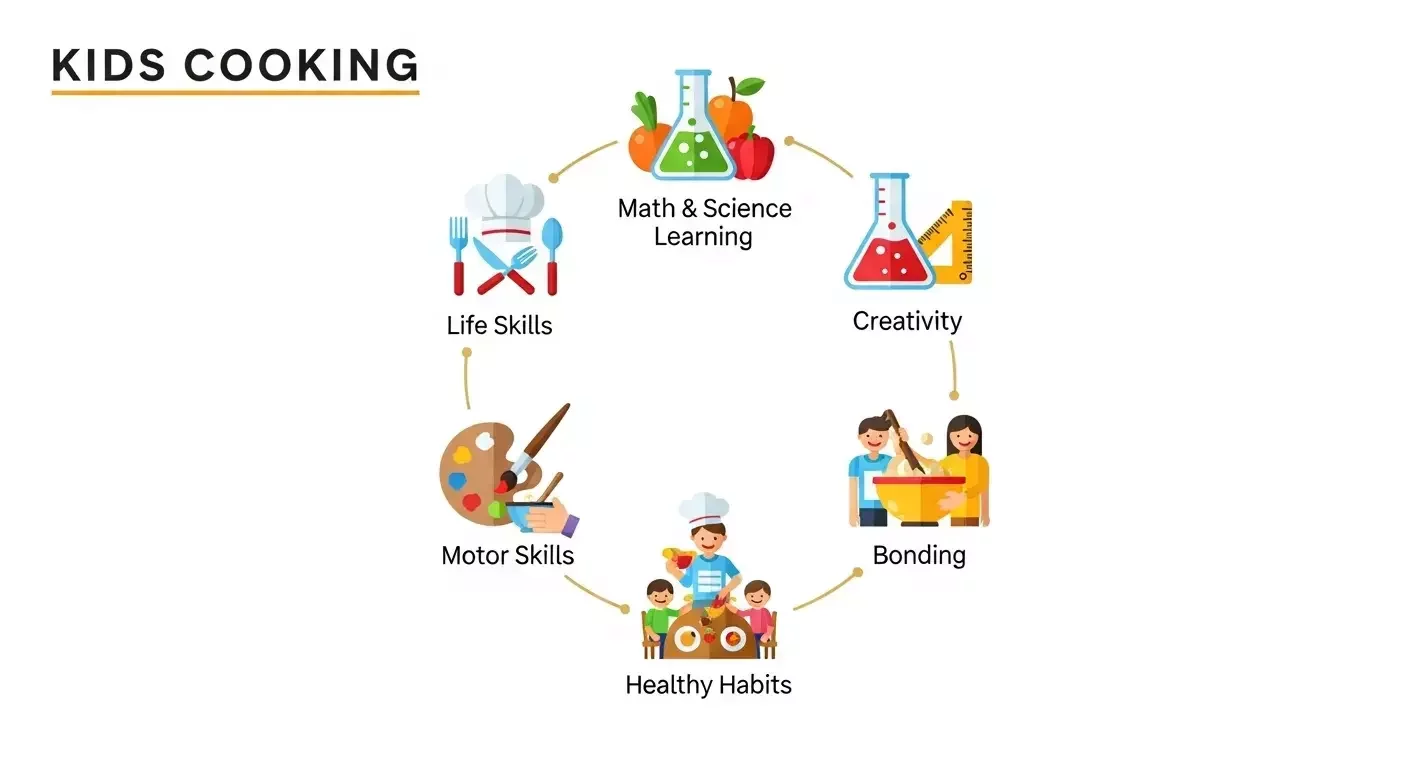 🌟 Introduction
🌟 Introduction
Have you ever noticed how children love to imitate adults in the kitchen—stirring, mixing, or pretending to “cook” with toy utensils? Cooking isn’t just play. For kids, it’s a powerful way to learn by doing. Activity-based learning through cooking helps children build confidence, develop real-life skills, and strengthen their creativity—all while having fun.
At Culinary Guru® Institute of Hotel Management, we see the kitchen as more than a place to make meals. It’s a mini-classroom that teaches lessons no textbook can match.
🥄 1. Cooking Builds Real-Life Skills Early
- Children learn independence and responsibility by handling simple kitchen tasks.
- Cooking shows them how to plan, prepare, and complete an activity—skills that stay for life.
- Even preparing a simple salad teaches patience, sequencing, and pride in their work.
💡Tip for Parents: Give your child a small role in daily meal prep, like washing veggies or arranging fruit.
📚 2. A Fun Way to Learn Math, Science & Language
Cooking naturally weaves in academics:
- Math: Fractions, measurement, and time (½ cup flour, 10 minutes baking).
- Science: Watching water boil, bread rise, or chocolate melt.
- Language: Reading recipes and following step-by-step instructions.
Children absorb these lessons more deeply because they’re doing rather than memorizing.
🎨 3. Boosts Creativity & Confidence
Cooking sparks creativity. Kids enjoy:
- Experimenting with flavors and textures.
- Decorating cupcakes or plating dishes.
- Feeling proud when family members enjoy their creations.
This builds confidence and a willingness to explore new challenges.
🧠 4. Enhances Focus, Motor & Sensory Skills
- Fine motor skills develop while stirring, kneading, or cutting soft foods.
- Sensory skills sharpen as kids smell spices, feel textures, and taste different foods.
- The process of following steps improves concentration and sequencing ability.
👨👩👧 5. Strengthens Family Bonding & Social Skills
Cooking brings families closer.
- It encourages teamwork (“who stirs, who sprinkles?”).
- Conversations flow naturally in the kitchen.
- Shared meals become moments of connection and joy.
Involving kids makes them feel valued and part of family traditions.
🌍 6. Encourages Healthy Habits & Food Awareness
- Children who cook are more open to trying fruits and vegetables.
- They learn portion control and balanced nutrition early.
- Kids see food as something to be respected, not just consumed.
This awareness supports lifelong healthy eating habits.
📈 Trends & Insights (2025 Perspective)
- Global trend: Educators now promote activity-based learning as a proven way to develop life skills. Cooking is a top method.
- India context: Parents increasingly enroll children in kids’ cooking clubs and camps to blend fun with learning.
- International spotlight: Jamie Oliver’s 10 Skills for Life initiative (2025) highlights cooking as essential—on par with reading and math.
❓ Quick FAQ for Parents
👉Download our free Age-Wise Kitchen Task Chart to discover what skills your child can safely learn at every stage—from toddlers to teens. It’s a simple guide to get started today.

